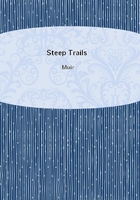
第20章 IV(6)
Frozen, blistered, famished, benumbed, our bodies seemed lost to us at times--all dead but the eyes. For the duller and fainter we became the clearer was our vision, though only in momentary glimpses. Then, after the sky cleared, we gazed at the stars, blessed immortals of light, shining with marvelous brightness with long lance rays, near-looking and new-looking, as if never seen before. Again they would look familiar and remind us of stargazing at home. Oftentimes imagination coming into play would present charming pictures of the warm zone below, mingled with others near and far. Then the bitter wind and the drift would break the blissful vision and dreary pains cover us like clouds. "Are you suffering much? Jerome would inquire with pitiful faintness. "Yes," I would say, striving to keep my voice brave, "frozen and burned; but never mind, Jerome, the night will wear away at last, and tomorrow we go a-Maying, and what campfires we will make, and what sunbaths we will take!"
The frost grew more and more intense, and we became icy and covered over with a crust of frozen snow, as if we had lain cast away in the drift all winter. In about thirteen hours--every hour like a year--day began to dawn, but it was long ere the summit's rocks were touched by the sun. No clouds were visible from where we lay, yet the morning was dull and blue, and bitterly frosty; and hour after hour passed by while we eagerly watched the pale light stealing down the ridge to the hollow where we lay. But there was not a trace of that warm, flushing sunrise splendor we so long had hoped for.
As the time drew near to make an effort to reach camp, we became concerned to know what strength was left us, and whether or no we could walk; for we had lain flat all this time without once rising to our feet. Mountaineers, however, always find in themselves a reserve of power after great exhaustion. It is a kind of second life, available only in emergencies like this; and, having proved its existence, I had no great fear that either of us would fail, though one of my arms was already benumbed and hung powerless.
At length, after the temperature was somewhat mitigated on this memorable first of May, we arose and began to struggle homeward. Our frozen trousers could scarcely be made to bend at the knee, and we waded the snow with difficulty. The summit ridge was fortunately wind-swept and nearly bare, so we were not compelled to lift our feet high, and on reaching the long home slopes laden with loose snow we made rapid progress, sliding and shuffling and pitching headlong, our feebleness accelerating rather than diminishing our speed. When we had descended some three thousand feet the sunshine warmed our backs and we began to revive. At 10 a.m. we reached the timber and were safe.
Half an hour later we heard Sisson shouting down among the firs, coming with horses to take us to the hotel. After breaking a trail through the snow as far as possible he had tied his animals and walked up. We had been so long without food that we cared but little about eating, but we eagerly drank the coffee he prepared for us. Our feet were frozen, and thawing them was painful, and had to be done very slowly by keeping them buried in soft snow for several hours, which avoided permanent damage. Five thousand feet below the summit we found only three inches of new snow, and at the base of the mountain only a slight shower of rain had fallen, showing how local our storm had been, notwithstanding its terrific fury. Our feet were wrapped in sacking, and we were soon mounted and on our way down into the thick sunshine--"God's Country," as Sisson calls the Chaparral Zone. In two hours' ride the last snowbank was left behind. Violets appeared along the edges of the trail, and the chaparral was coming into bloom, with young lilies and larkspurs about the open places in rich profusion.
How beautiful seemed the golden sunbeams streaming through the woods between the warm brown boles of the cedars and pines! All my friends among the birds and plants seemed like OLD friends, and we felt like speaking to every one of them as we passed, as if we had been a long time away in some far, strange country.
In the afternoon we reached Strawberry Valley and fell asleep. Next morning we seemed to have risen from the dead. My bedroom was flooded with sunshine, and from the window I saw the great white Shasta cone clad in forests and clouds and bearing them loftily in the sky.
Everything seemed full and radiant with the freshness and beauty and enthusiasm of youth. Sisson's children came in with flowers and covered my bed, and the storm on the mountaintop banished like a dream.